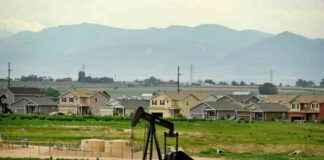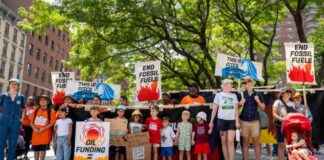In 2023, Seattle voters took a significant step by authorizing the city to establish a new entity dedicated to creating “social housing,” a type of affordable housing managed by the public to cater to low- and middle-income renters. Fast forward to the present, as residents gear up to vote on a new ballot initiative that will determine whether and how to fund this developer. Local advocacy groups are now vigorously promoting social housing as a pivotal climate solution, shedding light on the transformative potential it holds for the future.
Akiksha Chatterji, the campaigns director for the esteemed local nonprofit 350 Seattle, emphasized the long-term impact of social housing as a revolutionary solution. Advocating for climate and social justice as part of a just transition away from fossil fuels, Chatterji’s group has championed social housing as a cornerstone of its advocacy platform since the initial proposal’s inception. They have rallied supporters around the upcoming ballot initiative aimed at funding the developer through a proposed tax on wealthy corporations, which is set to be deliberated by voters on the impending Tuesday. Alongside 350 Seattle, Sunrise Seattle, a local chapter of the national youth climate organization Sunrise Movement, has lent its support to the social housing initiative, further underscoring its significance.
Seattle’s existing public housing developers and various programs designed to include affordable units have attempted to address the city’s housing shortage. Despite these efforts, the region still faces a deficit of 140,000 units to meet the anticipated demand for 640,000 new homes by 2044. The overarching goal of social housing is to alleviate this housing crunch equitably by developing apartments and townhouses that are shielded from market volatility. In the proposed model, units would be publicly owned and maintained as affordable indefinitely, in stark contrast to other forms of affordable housing developed by nonprofits that are subject to expiring federal tax credits and eventual market rate transitions.
As Tuesday’s vote looms, the Seattle Social Housing Developer, established by voters in 2023, aims to serve individuals across a broad income spectrum—from those earning 60 percent to 120 percent of the area median income. This demographic range translates to accommodating individuals with annual incomes ranging from approximately $64,000 to $127,000, based on the Seattle area’s median household income of around $106,000. By creating these “cross-class communities,” advocates believe that the initiative will not only foster inclusivity but also streamline the funding for construction and maintenance, as emphasized by House Our Neighbors, the advocacy group spearheading the campaign for the social housing developer.
Drawing inspiration from successful social housing projects in other regions like Montgomery County, Maryland, and Vienna, Austria, Seattle advocates are touting their social housing model as environmentally friendly. The developer is mandated to adhere to “passive house” standards for energy efficiency in all new constructions, employing top-notch insulation, air-tight seals, and other strategies to regulate temperature and humidity within buildings. This focus on energy efficiency is crucial for reducing emissions from fossil fuels, even in a city like Seattle with stringent energy codes for new constructions.
Subheadings:
Climate-Friendly Construction for a Sustainable Future
Michael Eliason, the founder and principal of the distinguished architecture firm Larch Lab, highlighted the significant energy savings that passive house standards can offer in heating and cooling operations. This translates to reduced emissions and a more sustainable approach to construction, particularly when compared to standard code requirements. Moreover, passive house buildings are better equipped to withstand climate disasters like wildfires, with robust air filtration systems that prevent embers from entering and maintain clean air quality—making them a formidable solution for climate resilience.
Urban Density and Emissions Reduction: The Nexus of Social Housing and Climate Action
Advocates of social housing in Seattle are emphasizing the pivotal role that increased urban density can play in reducing emissions and curbing reliance on cars. By enabling more people to reside near essential amenities like workplaces, schools, and grocery stores, social housing can foster a transit-friendly environment that minimizes greenhouse gas emissions associated with commuting. This approach aligns with the broader goal of enhancing sustainability and fostering a greener urban landscape.
Proposition 1A proposes a new excess compensation payroll tax targeting corporations that pay their executives over $1 million annually, with the potential to generate significant revenue to create 2,000 new units over a decade. On the other hand, Proposition 1B seeks to leverage existing funding from a tax on large companies that is shared with the city’s current affordable housing programs. The choice between these two funding mechanisms underscores the intricacies of balancing financial viability with long-term sustainability in the realm of affordable housing.
With the fate of Seattle’s social housing initiative hanging in the balance, the decisions made by voters in the upcoming election will not only shape the city’s housing landscape but could also influence broader conversations around affordability, climate resilience, and urban development. As advocates, policymakers, and citizens navigate this critical juncture, the vision of a more equitable, sustainable future remains at the heart of the social housing movement.














